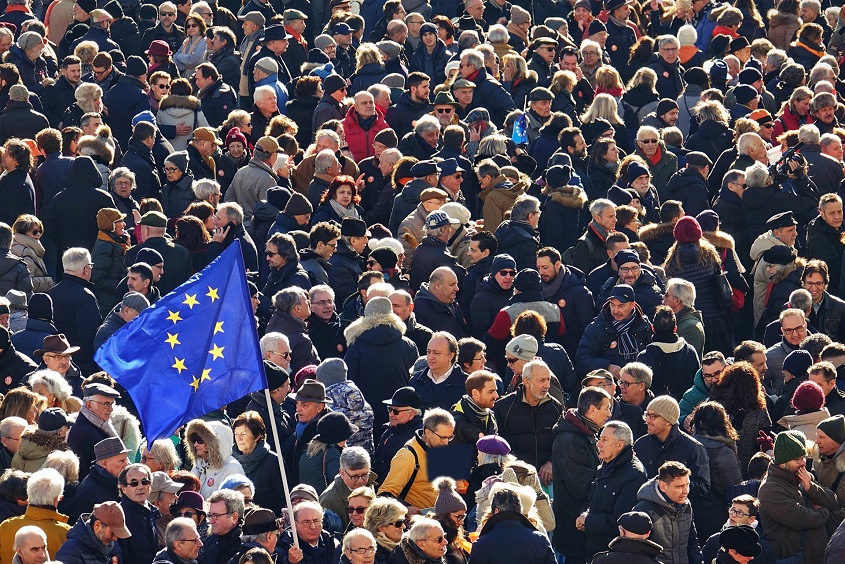On 9 May 2022, the Conference on the Future of Europe (CoFoE) came to a close with the publication of its final report, which included 49 official proposals and many more recommendations. Despite high expectations, the public attention to the conference quickly faded once it was clear that these demands would be left unfulfilled.
While some of the proposals required significant Treaty changes to be implemented, possibly explaining the resistance they were met with, others merely required a modest amount of political will. One, in particular, stands out.
Following deliberations over issues such as climate change, migration or the digital transformation, the participants decided to include a specific request in the report: embedding citizens assemblies in the EU’s decision making process. In other words, the largest exercise of participatory democracy ever held in the European Union wanted more … of itself. Promising, if not ironic.
Potential of citizen’s assemblies
Democratic deficit is a well-known concept amongst EU experts, describing the lack of democratic accessibility, representation and accountability in the EU felt by many European citizens. One of its main drivers is the slow and complex decision-making processes of the European institutions, which often take place behind doors, leading citizens to feel that they have no say in the process. This erodes public trust in the EU's ability to address important issues and make decisions in the best interest of its citizens, contributing to the rise of populism, polarisation and distrust in institutions.
The potential solution to this democratic deficit may lie in the very suggestion made by the participants of the CoFoE - the inclusion of citizen’s assemblies in the decision-making process. If executed well, they provide legitimacy to the process and can yield remarkably positive results.
In various European countries, such assemblies have helped move past contentious issues, most famously in Ireland on topics such as abortion and same-sex marriage. Citizens assemblies have the potential to energise the European public to engage in transnational debates about a wide range of issues and ensure their experience and expertise impacts the decision-making process.
What ought to be done?
There are pitfalls to citizen assemblies, as seen in the lacklustre impact of the first CoFoE. What worked in Ireland, for example, was expansive coverage of the proceedings, ranging from live streams to a steady interest from national broadcasting. In Europe, we should aim for no less. This requires a strong media strategy to cover developments, spread the message and engage the public.
National and local governments must also play a larger role- they bear a responsibility in “translating” the EU to their constituencies. Through information campaigns, courses, and other means, they can raise awareness amongst all citizens. Local administrations can organise their own assemblies in the local language, including citizens from all backgrounds, and especially minorities, to ensure true representation.
At the same time, they can support their citizens in making use of the available participation tools, overcoming obstacles such as digital literacy. This will promote greater participation, ensuring that even those areas and groups that have been traditionally overlooked, such as rural and depopulated areas or people with disabilities, have a voice in Brussels.
Finally, it must be clear that policy makers cannot ignore the outcomes of these assemblies. The European Parliament and the European Commission must extensively debate the main recommendations, leading to their adoption or a thorough response as to why they are put aside. If neither is given, citizens must be able to force a response through the European Court of Justice. Citizens cannot be expected to put in their valuable time, effort and trust in exercises of participatory democracy if their voices are perhaps listened to but not heard.
The Conference on the Future of Europe was a first step in the right direction. However, it must not remain a one-time event. We should learn from the first edition and ensure we take the necessary steps to make it a recurring event that is fully embedded in the policy-making process.
It should be made possible for the European Parliament or the European Court of Justice to call for a topical European public deliberation on any contentious issue which requires the input of the European public. In contrast to the Conference, such topical deliberations would focus on much more specific questions, including but not limited to the EU accession process, migration, climate change adaptation and democratic backsliding. If the CoFoE taught us something, it is that citizens have high expectations from the EU, and the EU must deliver.

